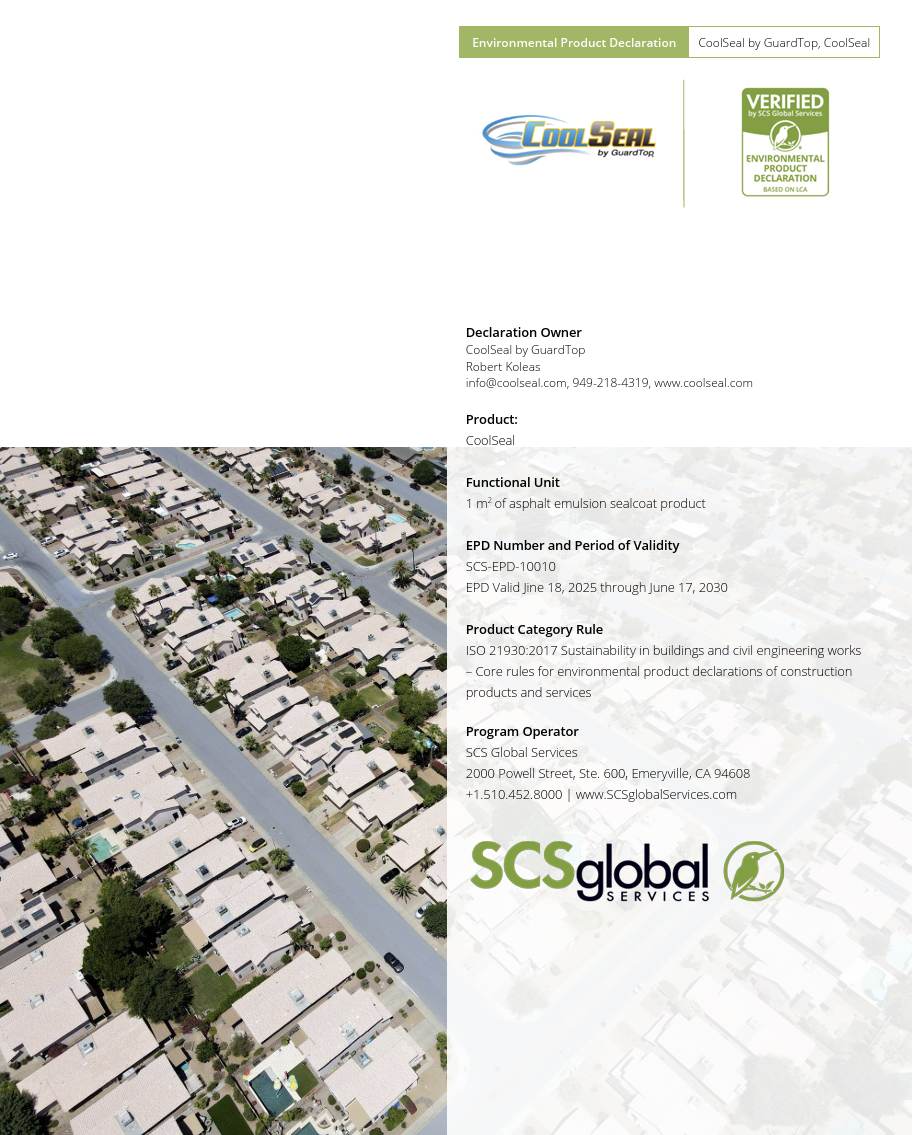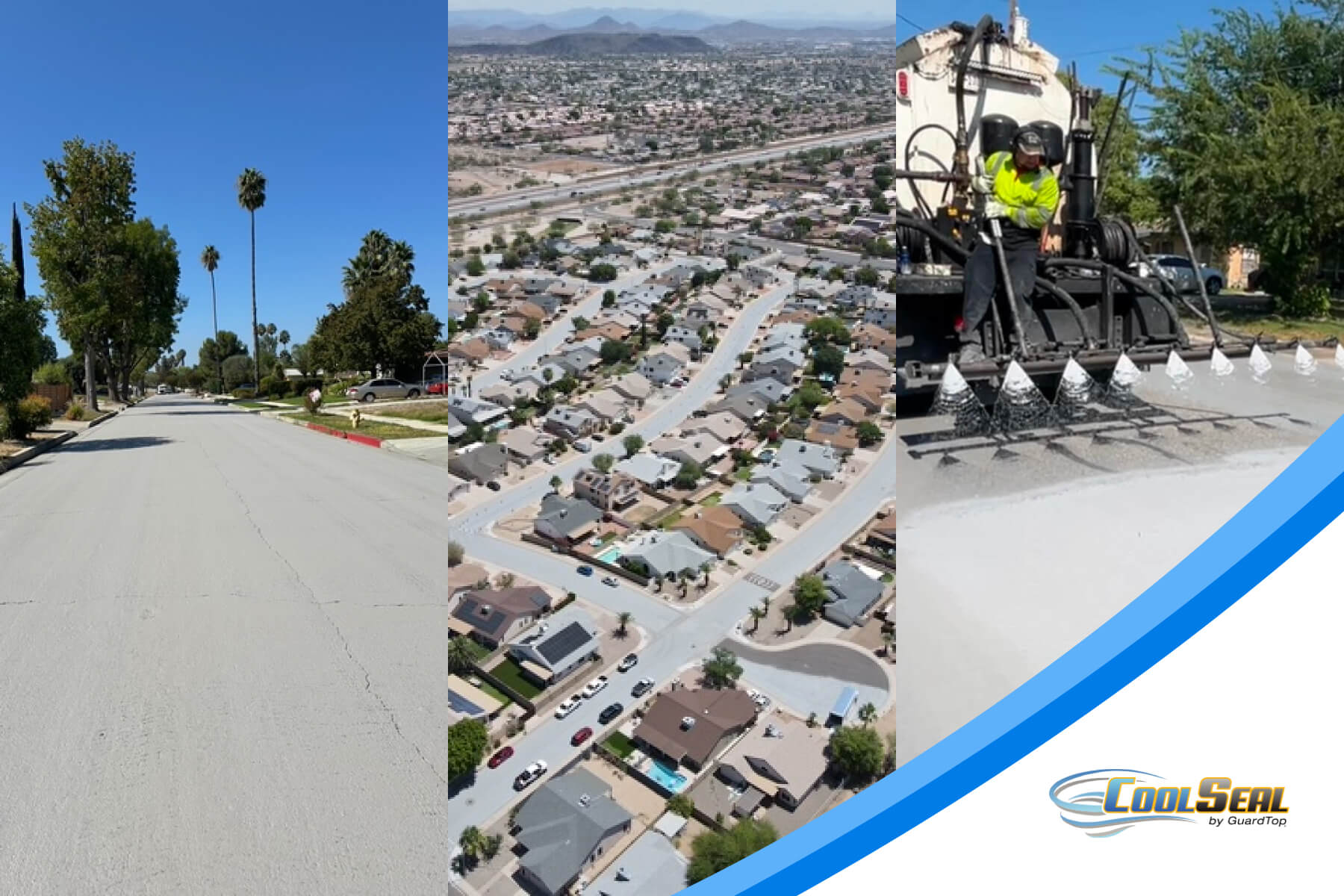As featured by Cronkite News:
In cities like Phoenix and Los Angeles – dense with concrete and asphalt, and subjected to many hot, sunny days – ambient daytime heat can be stored in walls and pavement and carry over through the night.
Lowering nighttime temperatures also can make living in Phoenix safer for those outdoors, such as the homeless population, and more bearable for lower-income residents who can’t afford air-conditioning.
Resurfacing asphalt with a brighter coating is proven to reflect sunlight and reduce the absorption of heat, according to ASU researchers. Initial tests by the Street Transportation Department on the Esteban Park lot showed a 10 to 15 degree difference between the surface temperatures of traditional asphalt and cool pavement.
This article was originally published by Cronkite News. Read the full article here.





